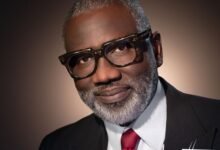Self discipline and happiness
Your ultimate goal in life is to achieve your own happiness. No one else can do this for you. This personal desire is the motivation behind almost every behaviour. Moreover, happiness is more emotional and spiritual than it is a matter of acquiring material things.
Brian Tracy believes that your ability to achieve your own happiness is the true measure of your success in life. Nothing is more important. Nothing can replace it. If you accomplish everything of a material nature, but you are not happy, you have actually failed at fulfilling your potential as a human being. You can only truly be happy when you practice self-discipline, self-mastery, and self-control. It is only when you feel that you are in complete control of your life that you are truly content. “You feel happy to the degree to which you feel you are in control of your own life.”
Psychologists call this your “locus of control”. There are fifty years of research and hundreds of books and articles on this subject. They all conclude that stress and unhappiness arise when you feel controlled by outside circumstances. This is explained as the difference between an “internal locus of control” (happy) and an “external locus of control” (unhappy).
You have an internal locus of control when you feel that you are in charge, you make your own decisions, and what happens to you in life is largely determined by yourself. When you have an internal locus of control, you feel that you are behind the wheel of your own life and that you are in the driver’s seat. You feel that you determine most of what happens to you. As a result, you feel strong, purposeful, and happy.
On the other hand, you have an external locus of control to the degree to which you feel that you are not in control or that you have little ability to direct your own life.
Many people feel that they are controlled by their own personalities and that they are not able to change for the better. They say, “That is just the way I am.” By saying this, they absolve themselves of all responsibility for exerting the necessary discipline and willpower to make the changes they know they need to make in order to live the kind of life they want to live and to be happy.
The key to replacing an external locus of control with an internal locus of control is for you to decide today to take complete charge of your life. RealiSe and accept that you make your own decisions and that you are where you are and what you are because of yourself. If there is some area in your life in which you are not happy, discipline yourself to do whatever it takes to change the situation.
THE REASON FOR
HAPPINESS
It is often the size of the GAP between your present situation and the conditions and circumstances that you feel that you need to be happy that determines whether you are happy or unhappy. This is very much a matter of your own evaluation and decision.
There is an old saying that “success is getting what you want; happiness is wanting what you get”. When your income and your life are consistent with your goals and expectations and you are content with your situation, you feel happy. If, on the other hand, for any reason your current situation is different from what you really want and expect, you will be discontented and unhappy.
The interesting thing about happiness is that it is not a goal that you can aim at and achieve in and of itself. Happiness is a by-product that comes to you when you are engaged in doing something that you really enjoy while in the company of people who you like and respect.
Earl Nightingale said that “happiness is the progressive realisation of a worthy ideal”. Whenever you feel that you are moving, step-by-step, towards something that is important to you, towards your most important goals, you automatically feel happy. You feel satisfied and content. You feel a tremendous sense of personal growth and well-being.
FIVE INGREDIENTS OF HAPPINESS
Self-discipline is essential to happiness. Self-discipline requires both that you determine clearly what happiness means to you and also that you work progressively each day towards the achievement of that ideal condition.
In Tracy’s experience and teachings, he has found that there are five ingredients to happiness. A shortfall in any of these areas can cause stress, unhappiness, and a feeling of being out of control.
1. Health and energy. This is perhaps the most important element of a good life. We strive for it all our lives. It is only when you enjoy high levels of pain-free health and a continuous flow of energy that you feel truly happy.
In many cases, health is a “deficiency need”. This means that you do not think about your health very much until you are deprived of it. You must use discipline and willpower throughout your life to achieve and maintain high levels of health and fitness.
2. Happy relationships. Fully, 85 per cent of your happiness—or unhappiness—will come from your relationships with other people. As Aristotle said, “Man is a social animal.” We are designed to function in society, working and living with other people at every stage of our lives.
Your ability to enter into and maintain high-quality relationships with your spouse, children, friends, colleagues, and others is the true measure of the quality of your personality and your level of mental health. People with high levels of self-esteem and self-respect get along better with others and have much happier lives.
3. Meaningful work. To be truly happy, you must be fully engaged with life. You must be doing things that keep you active and give you a sense of fulfilment. If you are making a living, you must be doing work that you enjoy, do well, and for which you are well paid.
People are truly happy only when they feel they are making a contribution of some kind that they are putting in more than they are taking out. You need to feel that what you do really makes a difference in the lives and work of other people.
4. Financial independence. Some of the greatest fears we experience are those of loss, failure, and poverty. We fear being destitute, without funds, and dependent on others.
One of your chief responsibilities to yourself is to work towards financial independence and financial freedom throughout your life. The happiest of all people are those who have reached the point at which they no longer worry about money. This is not something you can leave to chance, but rather something that requires deliberate, purposeful action and tremendous self-discipline to achieve.
5. Self-actualisation. This is the feeling that you are becoming everything you are capable of becoming. This occurs when you feel that you are realising more and more of your true potential.
Abraham Maslow is best known for his Hierarchy of Needs. He determined that people have both “deficiency needs” and “being needs”. People strive either to compensate for their deficiencies or to realise their potentials. He concluded that you begin to evolve and develop to the highest levels possible for you only when your deficiency needs are first satisfied.
In each of these areas, whenever you exert self-discipline and willpower to overcome the tendency to take the easy way, you feel happier about yourself. When you take a leap of faith in the direction of your dreams and then discipline yourself to keep going in spite of all obstacles and hardships, you feel powerful. Your self-esteem and self-confidence increase, and then as you move, step by step, towards your ideals, you feel genuinely happy.
BY CAPT. SAM ADDAIH (RTD)




